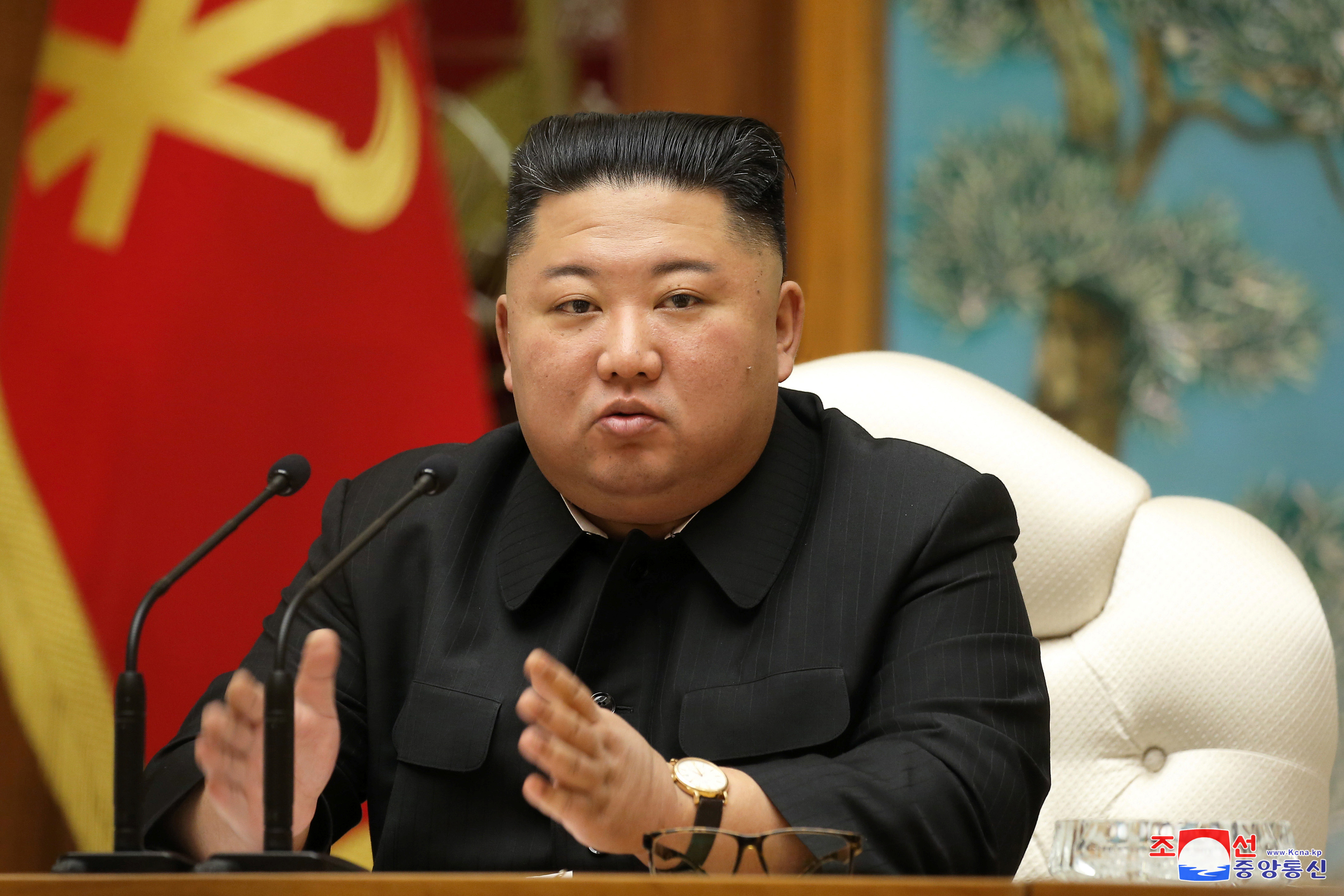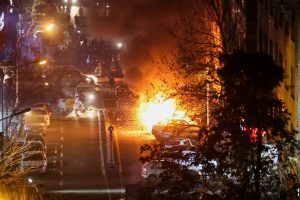Signature economic reforms brought in by North Korea’s Kim Jong Un are now under threat as his government responds to a series of crises by reasserting the state’s control.
As Kim welcomed thousands of delegates to a rare congress of the Worker’s Party this week in Pyongyang, North Korea faces perhaps its most challenging environment since a famine devastated the country in the 1990s.
With North Korea’s economy already under siege from international sanctions imposed over its nuclear weapons programme, last year the country was further buffeted by damaging floods and an economically devastating lockdown aimed at preventing a coronavirus outbreak.
Kim has gone from opening well-stocked department stores and planning tourist resorts in 2019 to publicly apologising for failing to reach his economic goals.
Read more: Widespread Covid-19 outbreaks in China lead to major closures
In the face of those crises, the congress is set to announce a new five-year economic plan, with many observers predicting an agenda aimed at cementing recent efforts to reimpose central control over more of the economy.
Kim has made the economy a central aspect of his rule, and since he came to power in 2011, cellphones, solar panels and other consumer items have proliferated.
Some initiatives, including special economic zones and tourist resorts, were government-led.
Others, such as a loosening of controls over private markets and some entrepreneurial activity, were often simply the government co-opting or turning a blind eye to existing trends.
While on paper those policies still stand, there are signs the government is reasserting itself in ways that effectively roll back or curtail some of those reforms, according to defectors, analysts, and entrepreneurs with experience working in the North.
‘RATION ECONOMY’
“Under such a situation, the instinct is to impose a ration economy with the state controlling and directing the flow of resources,” said Geoffrey See, whose non-profit group Choson Exchange flourished during North Korea’s entrepreneurial expansion under Kim.
But with border closures and restrictions on domestic travel to counter coronavirus, trade with China has plummeted and traders have struggled to maintain the logistics networks necessary to supply their businesses.
A foreign diplomat with contacts in Pyongyang said shelves of grocery stores that had come to filled with imported products early in Kim’s reign are increasingly bare.
Economic policy is one area where there appears to be real factions within the North Korean government.
Some leaders are urging more openness to at least some market-style reforms while other more conservative elements seek to retain more control, said Sokeel Park, of Liberty in North Korea, which supports defectors.
PANDEMIC LEGACY
“The pandemic has forced the ball into the conservative faction’s court and allowed them to do everything they want,” he said. “That may be a legacy that outlasts the pandemic itself.”
However, Kim knows how important the private markets, consumer items, and business ventures have become to many North Koreans and is unlikely to fully unwind them, Kang Mi-jin, a defector who reports for Daily NK, a Seoul-based website that releases news and information based on sources inside North Korea.
Instead, the congress will likely be used to exert greater party leadership, she said.
Even if Kim stops short of actually rolling back reforms, an increasingly assertive government could have a long-term impact, Park said.
“Given that people are relying on markets to survive, the government can’t and won’t get rid of them, however the activity and the prosperity possible through them could be severely diminished,” he said, with more taxes, kickbacks or regulations potentially imposed.
CRISIS OPPORTUNITIES
While North Korea’s self-imposed border closures and domestic travel limits appear driven by real concern over the coronavirus, other decisions merely seize upon opportunities created by the crisis, said Christopher Green, a North Korea expert at the University of Leiden in the Netherlands.
“Pyongyang has taken additional steps that have less to do with the immediate concerns of pandemic control, and more to do with rolling back some of the reforms it has implemented since Kim Jong Un came to power,” he wrote in a recent report for NK Pro, a website that monitors North Korea.
Some of the measures so far include exchange controls for diplomats and crackdowns on the activities of currency traders in borderland regions, including the apparent execution of one currency trader, according to South Korean officials.
In the unofficial market in capital Pyongyang, the North Korean won’s value has risen some 17.5% and 15.2% against the dollar and Chinese yuan over the three past months, according to data compiled by Daily NK.
SOARING WON
Authorities restricted the use of the dollar in order to boost domestic demand, sending the won soaring and causing problems for residents who didn’t already have reserves, Ha Tae-keung, a South Korean lawmaker and member of the parliamentary intelligence committee, said after being briefed by the South’s spy agency.
Late last year North Korea crafted new regulations to give the ruling Workers’ Party greater involvement in and control over consumer markets, reported Daily NK.
“These changes ultimately broaden the ability of the Central Committee to monitor and exert control over the entire civilian economy,” the site said.
And smugglers, who analysts say are essential if North Korea is to alleviate the worst social consequences of the border closure, have instead been accused of anti-state actions.
“These are the actions of a regime that is using the pretext of a demonstrably serious crisis to reassert political dominance over the economy – a dominance that had been slipping for quite some time, until a pandemic came along,” Green said.
- Reuters























